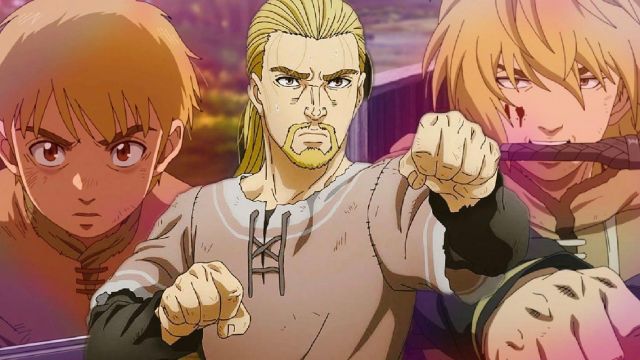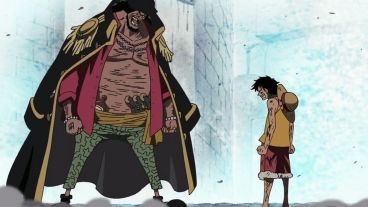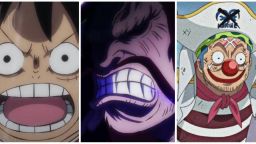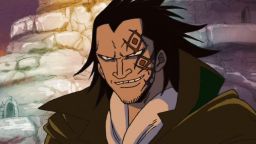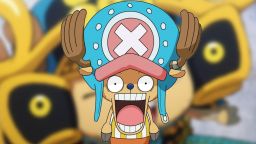While an official confirmation for Vinland Saga's third season is yet to be announced, the promotional art created by Character Designer Takahiko Abiru to commemorate the end of Season 2 strongly hinted at its possibility. However, it might be in the series' best interest to conclude on a high note.
The ending of Vinland Saga's Season 2 served as a perfect culmination for the series, providing a profound resolution to Thorfinn's character arc. From his initial departure from Iceland as a naive and inexperienced individual, he returned home as a mature and enlightened individual. Every conflict established in Season 1 was skillfully brought to a natural conclusion in the Season 2 finale, particularly with regard to Thorfinn's internal struggles. If the show were to continue, shifting Thorfinn into a supporting role and directing focus towards other characters in need of development could potentially serve the series better, allowing for a fresh perspective and maintaining the quality established thus far.
Thorfinn's Story Already Came Full Circle

Throughout the entirety of Season 1 to the gripping conclusion of Season 2, Thorfinn undergoes a profound journey of personal growth. Initially, he is portrayed as an inquisitive and adventurous young boy yearning to leave his village and embark on thrilling exploits. However, the pivotal conflict arises when his father, Thors, is tragically killed by Askeladd. Compounding the tragedy is the fact that Thors sacrificed himself to protect Thorfinn, who had secretly stowed away on his father's ship in search of adventure. This event triggers a cascade of anguish, guilt, and a relentless pursuit of revenge within Thorfinn's psyche.
From the series' inception, Thors imparts a poignant lesson to his son, declaring that "No one has any enemies." Yet, Thorfinn must learn this profound truth firsthand. Consumed by his unwavering desire for retribution against Askeladd, Thorfinn gradually becomes entangled within Askeladd's group. In this pursuit of vengeance, he inevitably transforms into his own enemy, not only by aligning himself with the Viking group responsible for his father's demise but also by becoming trapped in a cycle of anger, hatred, and self-destruction. Thus, Thorfinn becomes both his enemy in a literal sense and the greatest obstacle hindering his own path to inner peace.
In the climactic moments of Season 1, Thorfinn finds himself torn apart emotionally when Askeladd meets his end at the hands of Prince Canute. This turn of events could have redirected his animosity toward this new adversary. However, an unforeseen twist intervenes to save Thorfinn from himself—he is sold into slavery. It is during his time as a slave, removed from the battlefields, that he is afforded the opportunity for introspection and contemplation of the harrowing circumstances he has endured. This period compels Thorfinn to confront his inner demons and assimilate the profound lessons learned from his time as a Viking. Recognizing Askeladd as a mentor in his own complex way, Thorfinn acknowledges that he truly had no enemies, as his father had initially taught him. By contemplating forgiveness even for his father's murderer, he realizes he no longer has any justification for inflicting harm upon others. Ultimately, as Season 2 draws to a close, and Thorfinn emerges from his enslavement, he finds his way back home, profoundly transformed by his arduous journey of self-discovery.
A Third Season May Only Overcomplicate Vinland Saga's Established Themes

Season 2 of Vinland Saga introduced a significantly different tone compared to Season 1, and this change was a welcome development. The relentless state of war that Thorfinn experienced in Season 1 effectively mirrored his internal turmoil. The imagery of constant warfare depicted in each episode aptly represented his psychological struggles. Consequently, the slower and more socially-focused nature of Season 2 served as a perfect shift to reflect Thorfinn's pursuit of inner peace and understanding. While challenges and difficulties persisted, Thorfinn actively sought personal growth and genuine introspection, resulting in a reduced emphasis on action. The climactic final battle of Season 2 beautifully illustrated how Thorfinn's altered perspective enabled him to change the course of conflict and bring about a peaceful resolution.
While the dramatic and slower pace worked effectively for Season 2, providing a contrasting counterpoint to the perpetual warfare of Season 1, a continuation of the same leisurely tempo in a potential third season would be unnecessary and could potentially alienate fans. Likewise, a third season predominantly focused on intense action and fighting would undermine the psychological progress Thorfinn fought so hard to achieve in the previous season. Although witnessing Thorfinn apply his newfound mindset to further situations could be intriguing, the series has already delved sufficiently into his development. Expanding beyond what has already been explored in the first two seasons risks diluting the impact of the striking change of pace in Season 2 or undermining the well-established themes of empathy, forgiveness, and redemption that Thorfinn's character arc encapsulated.
Season 2 Ended the Series on the Perfect High Note

Throughout Vinland Saga, the concept of "Vinland" consistently pops up in varying forms. In the first episode, Vinland is both a distant land that Leif found long ago, and it is the place that a dying slave sees in his final moments. The common thread that both these conceptions have is that Vinland is a place free from suffering and ultimately better than where they are at that moment. This is best expressed when Thorfinn asks his father where those who want to run away go. His father doesn't answer at that moment, but given the ongoing theme up to that point, the answer is heavily implied to be Vinland.
Instead of being a concrete place, Vinland serves as an idealized concept that can never truly be reached in the outward sense. Thors recognizes this when he tells Askeladd just before he is killed that "a true warrior doesn't need a sword." In other words, before a person can change the world, they need to be the change they want to see. Thorfinn's initial fascination with the sword in Episode 1 foreshadows his personal struggle by greatly conflicting with his father's ideals. However, when Thorfinn fights Snake without using a sword in Season 2, he is physically showing that he has finally understood what his father meant all those years ago. At that point, the true conflict of the story was resolved.
Thors' initial method of not answering Thorfinn's question, but instead letting his response be implied in the absence therein, was far more poetic than repeating what was already clear. Taking a similar approach to Thorfinn's story, not answering all the questions in a third season could have a similar impact on the series. Season 2's finale was a perfect ending, and letting the rest of his story be left up to imagination may actually give a better conclusion to the questions raised by the series up to this point. After going through the struggles he endured throughout the series, the answer to whether Thorfinn will discover Vinland has already been implied.
